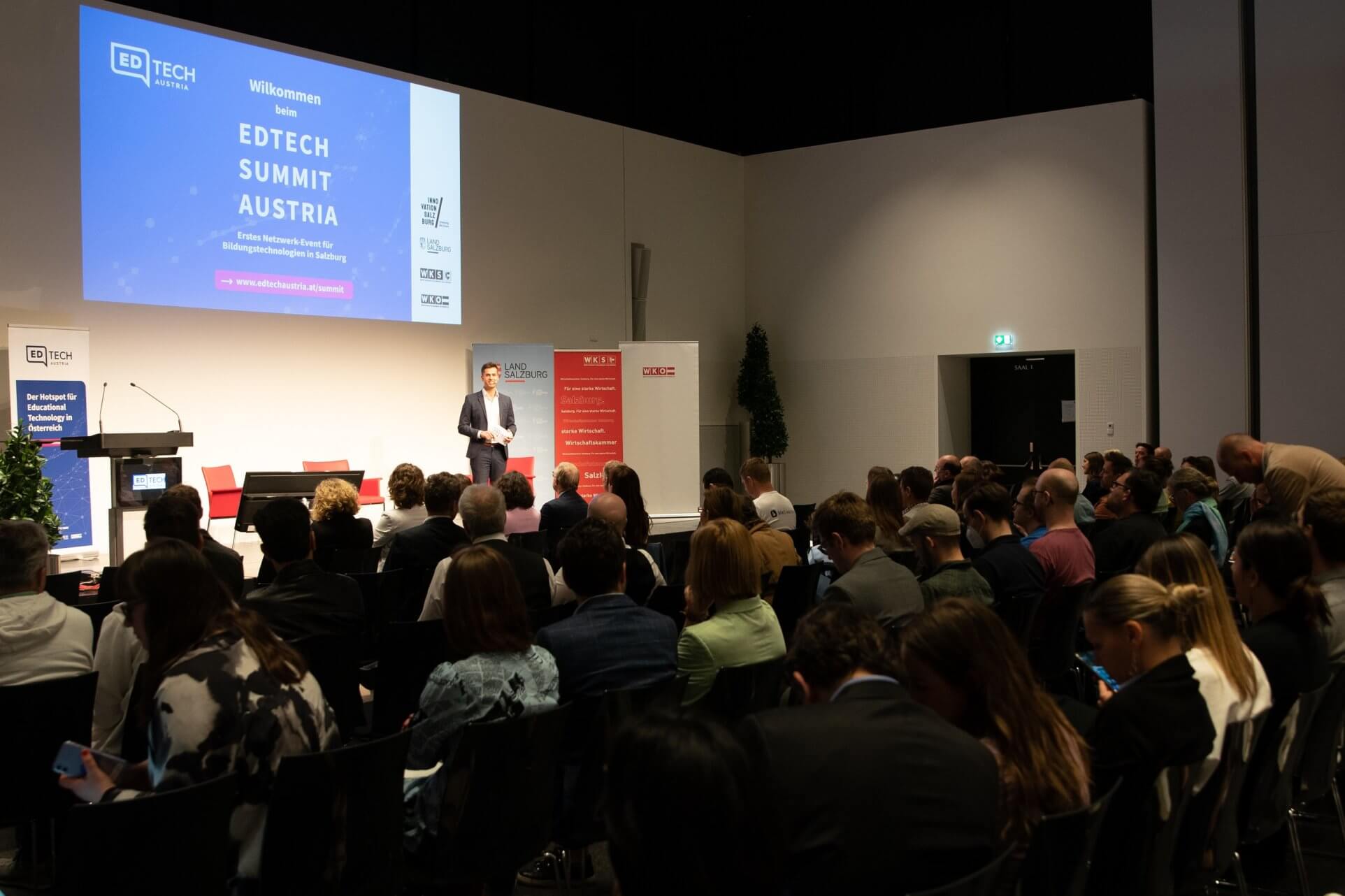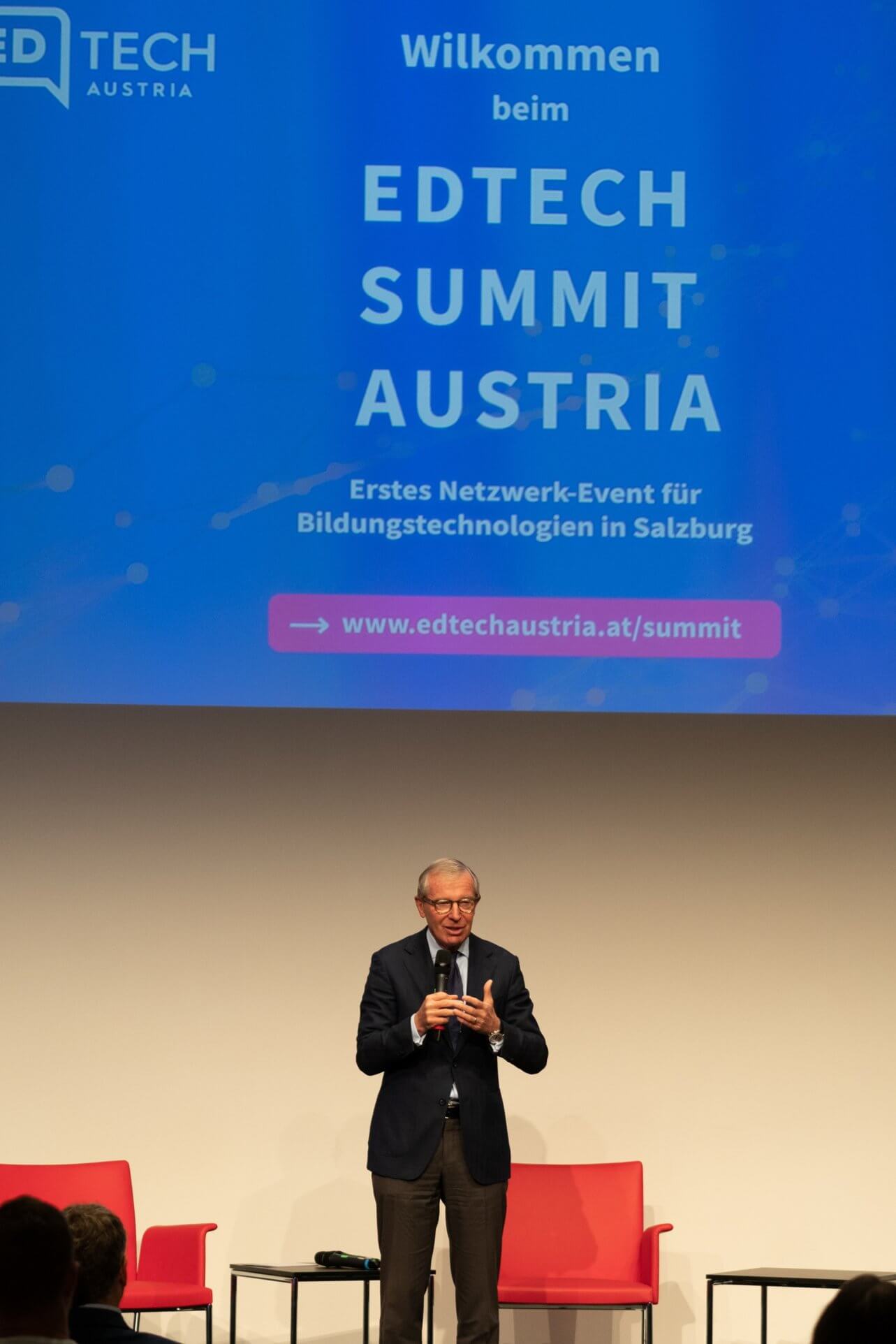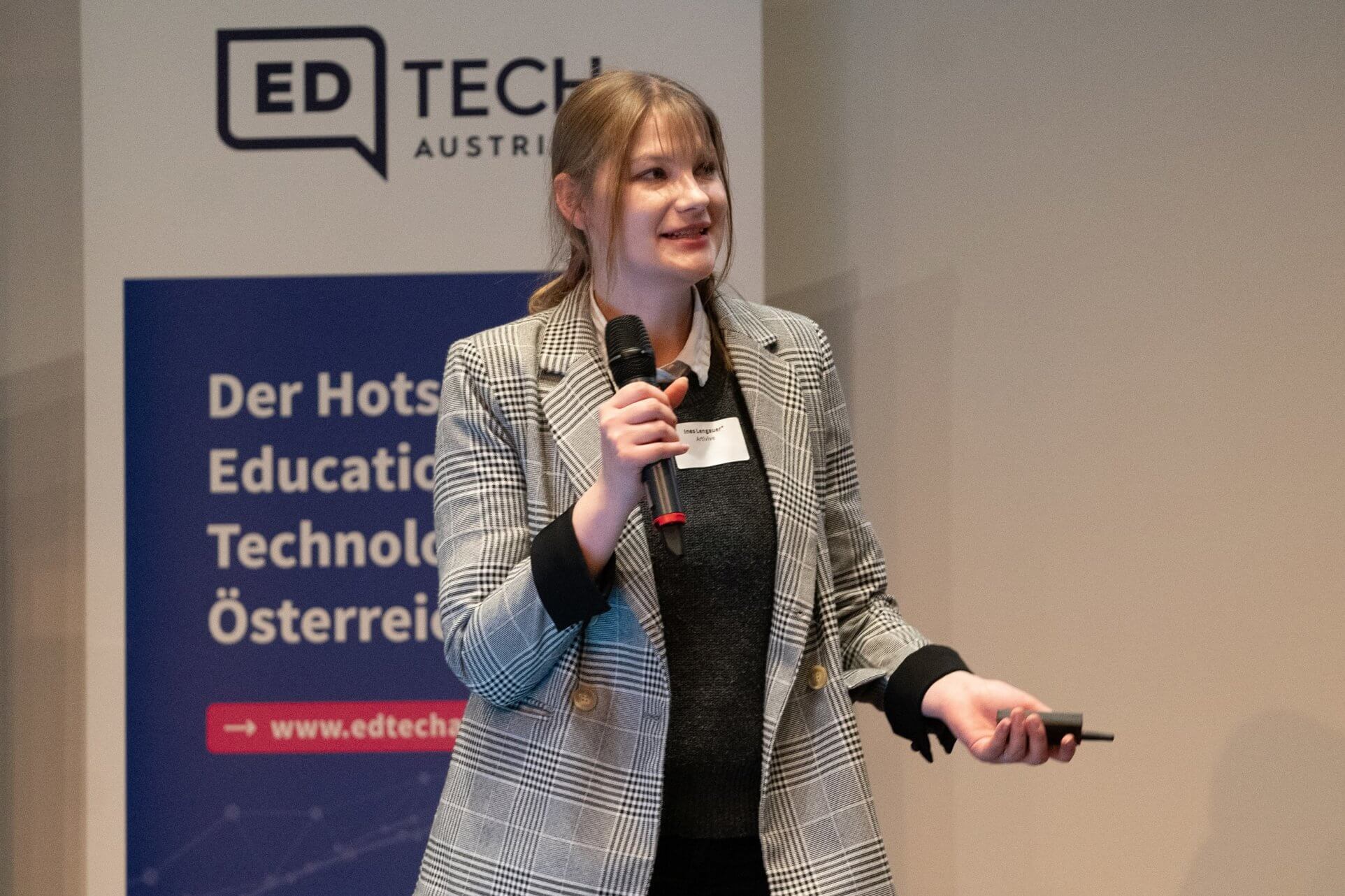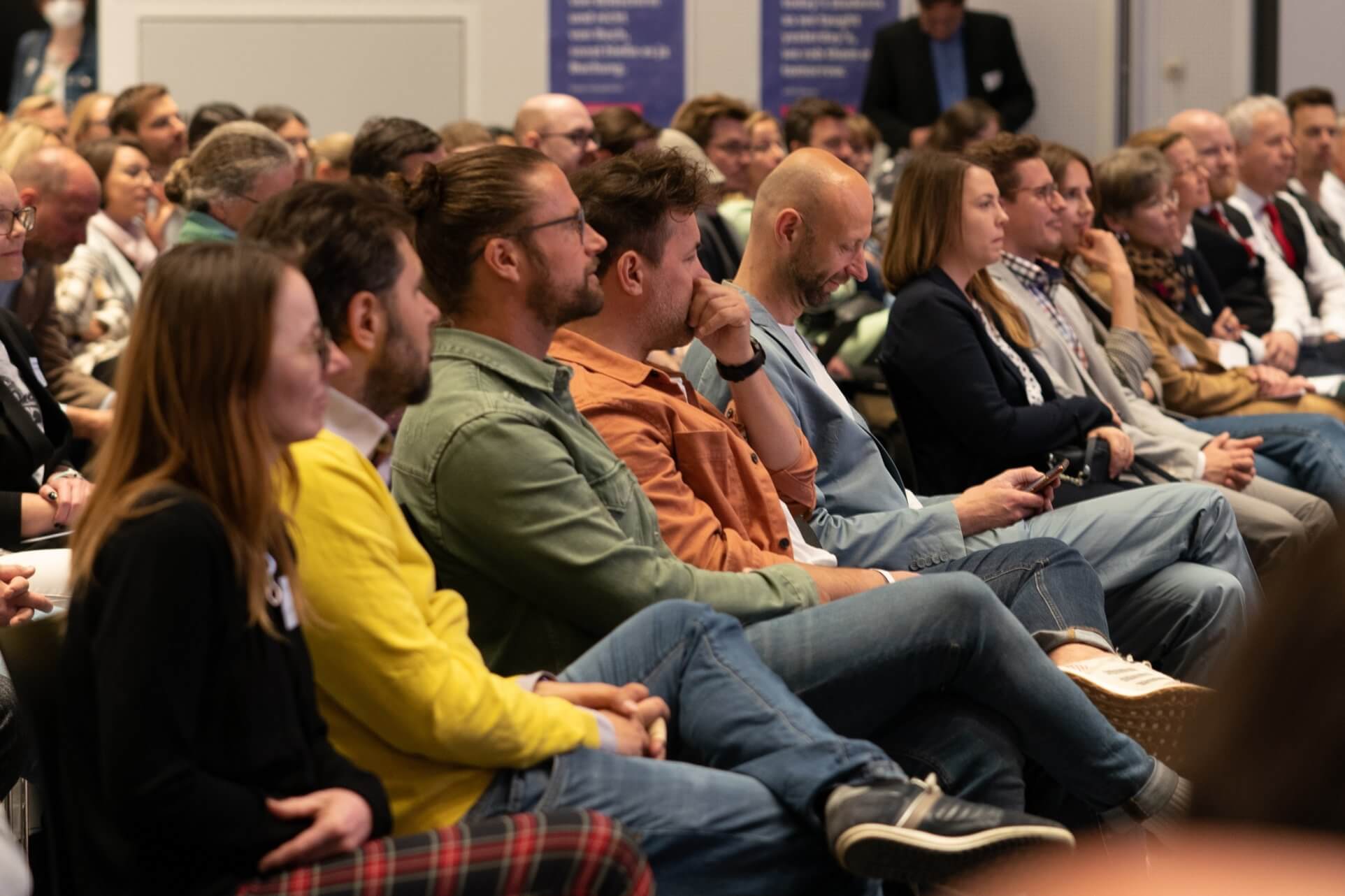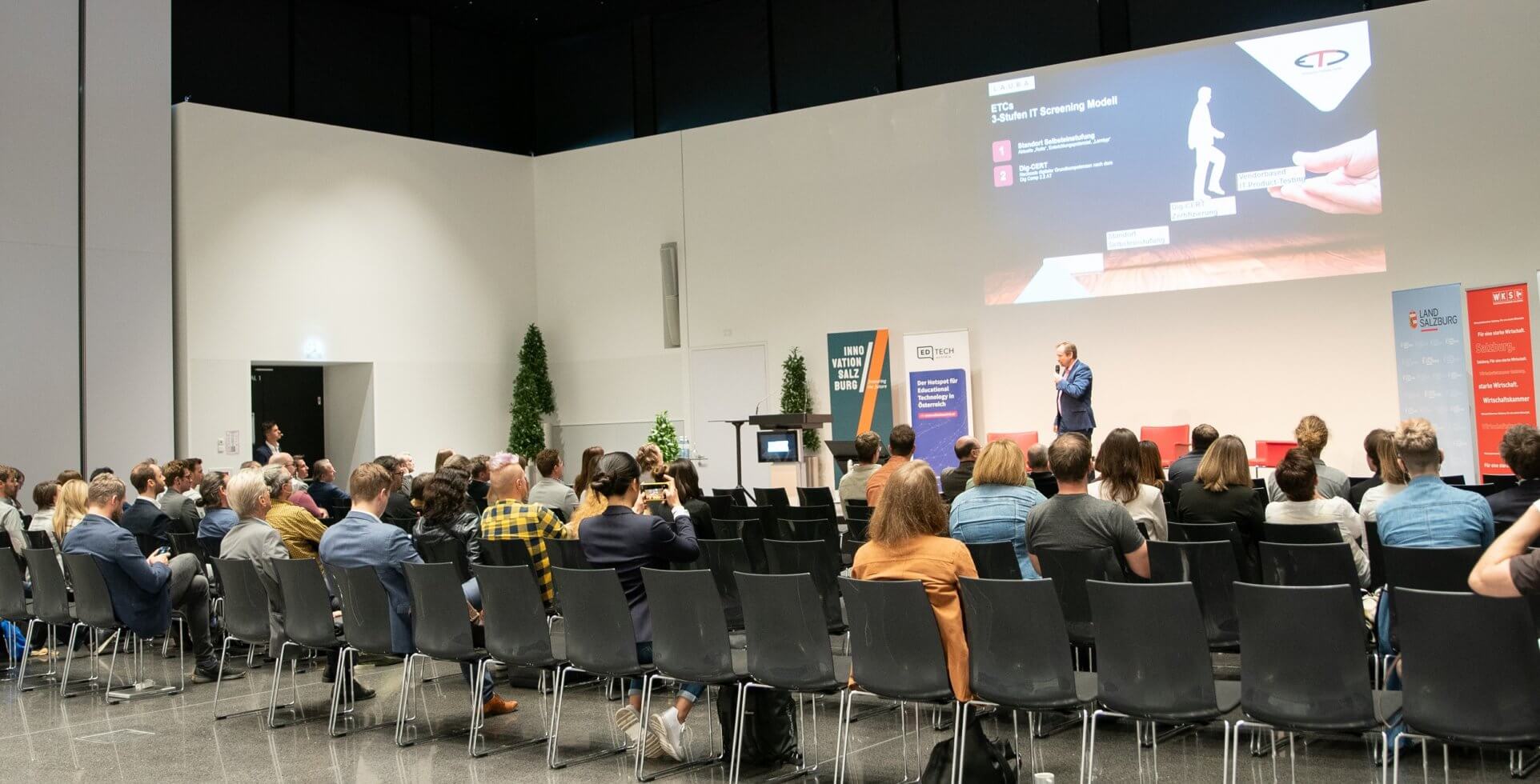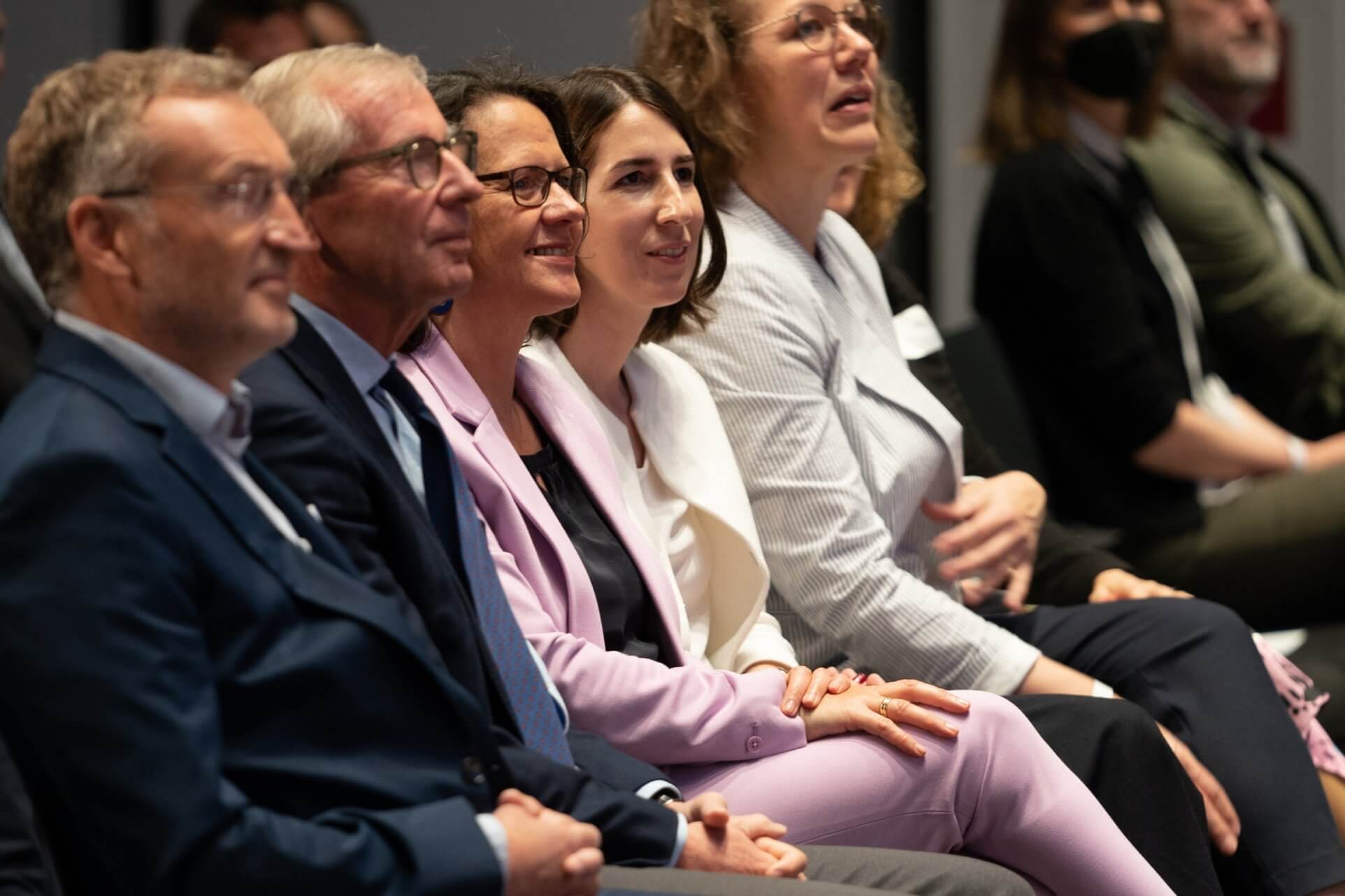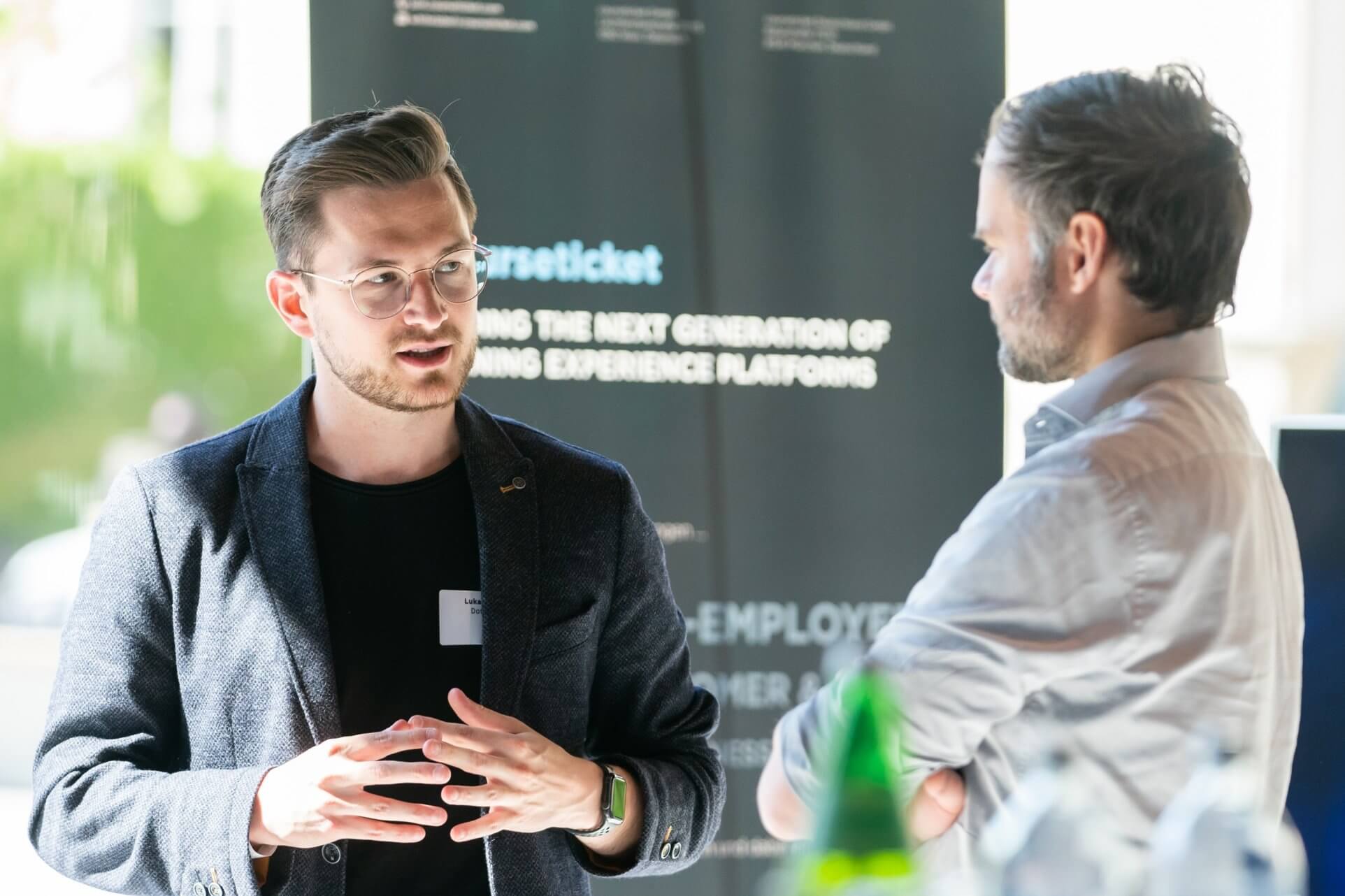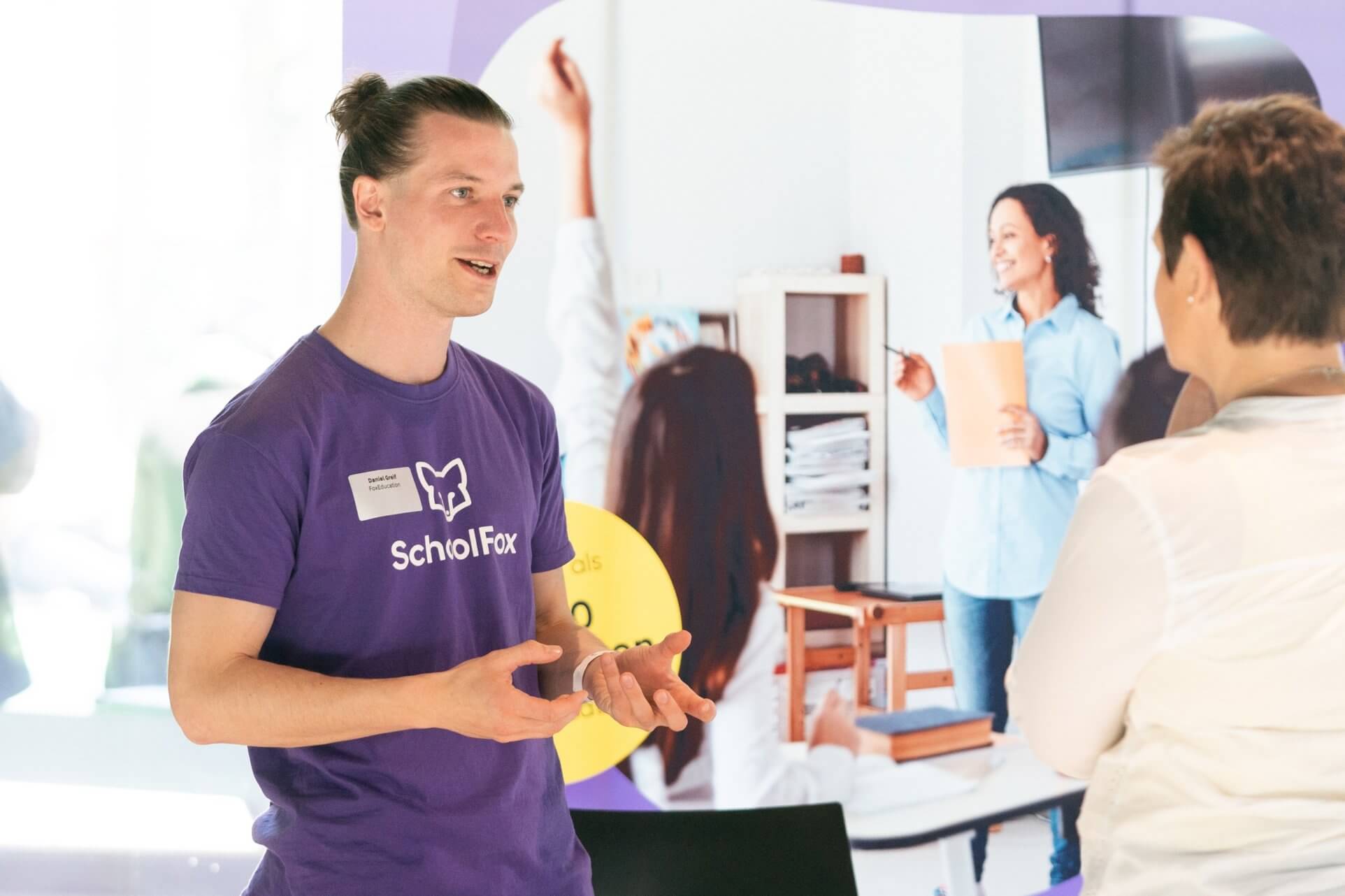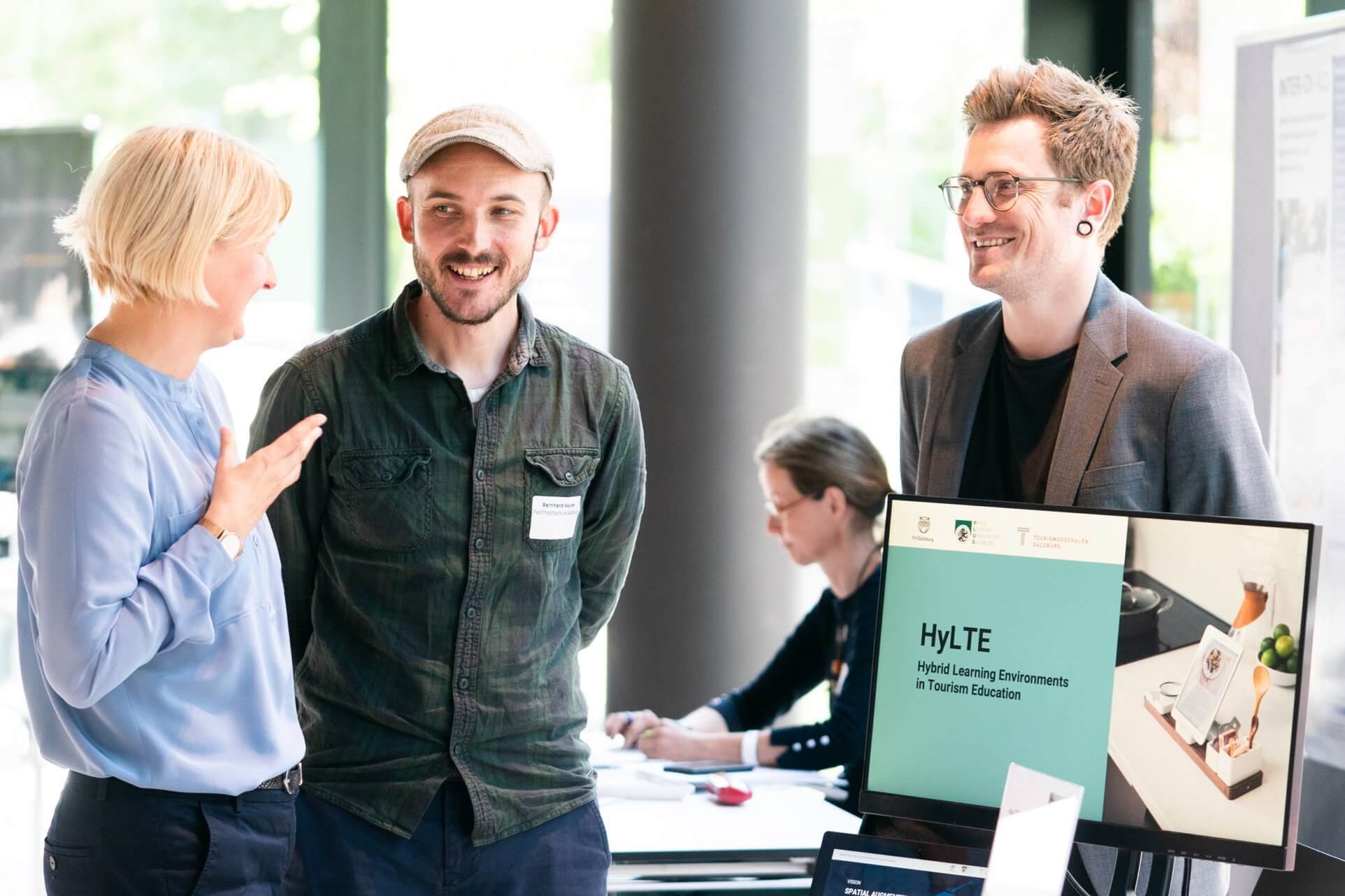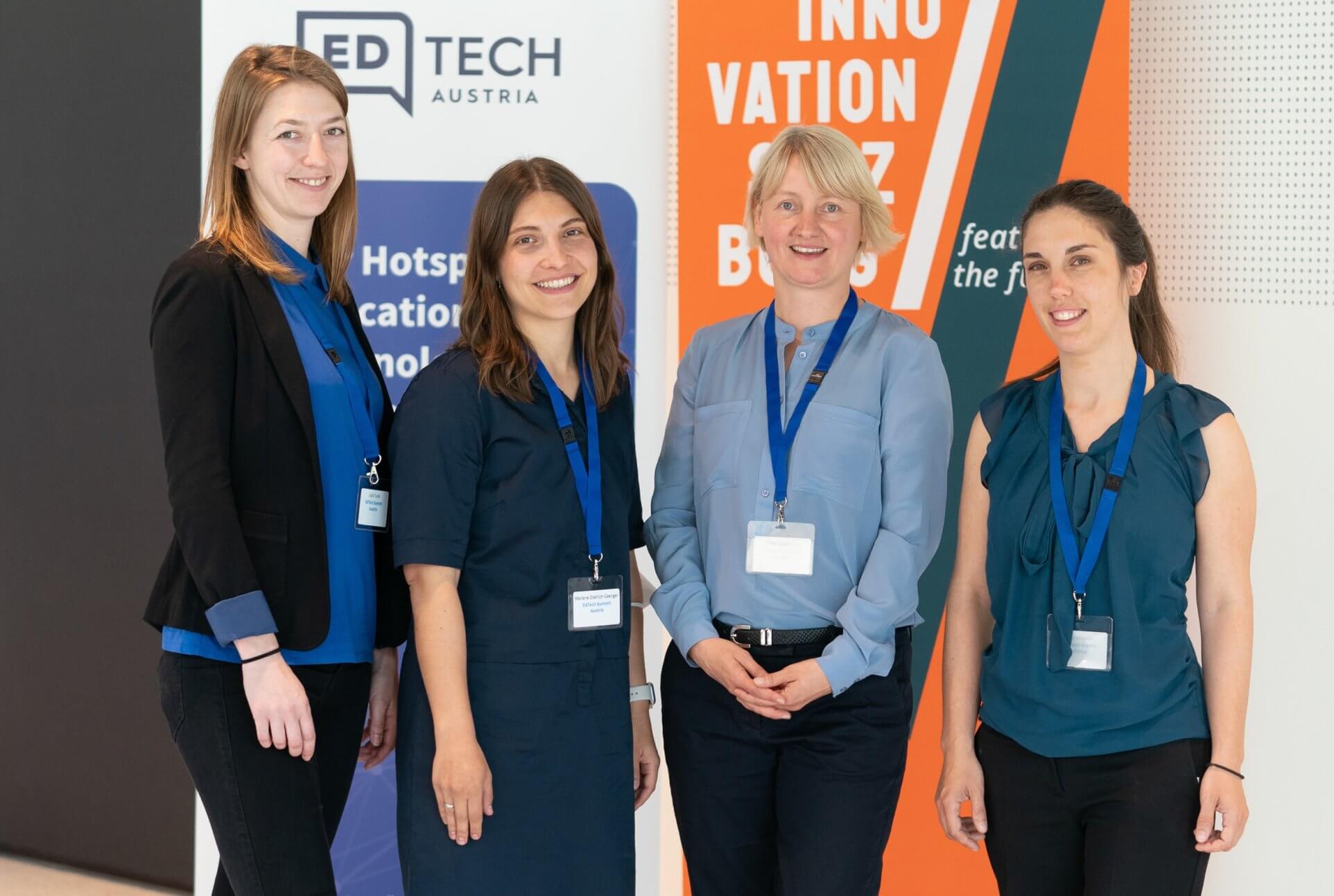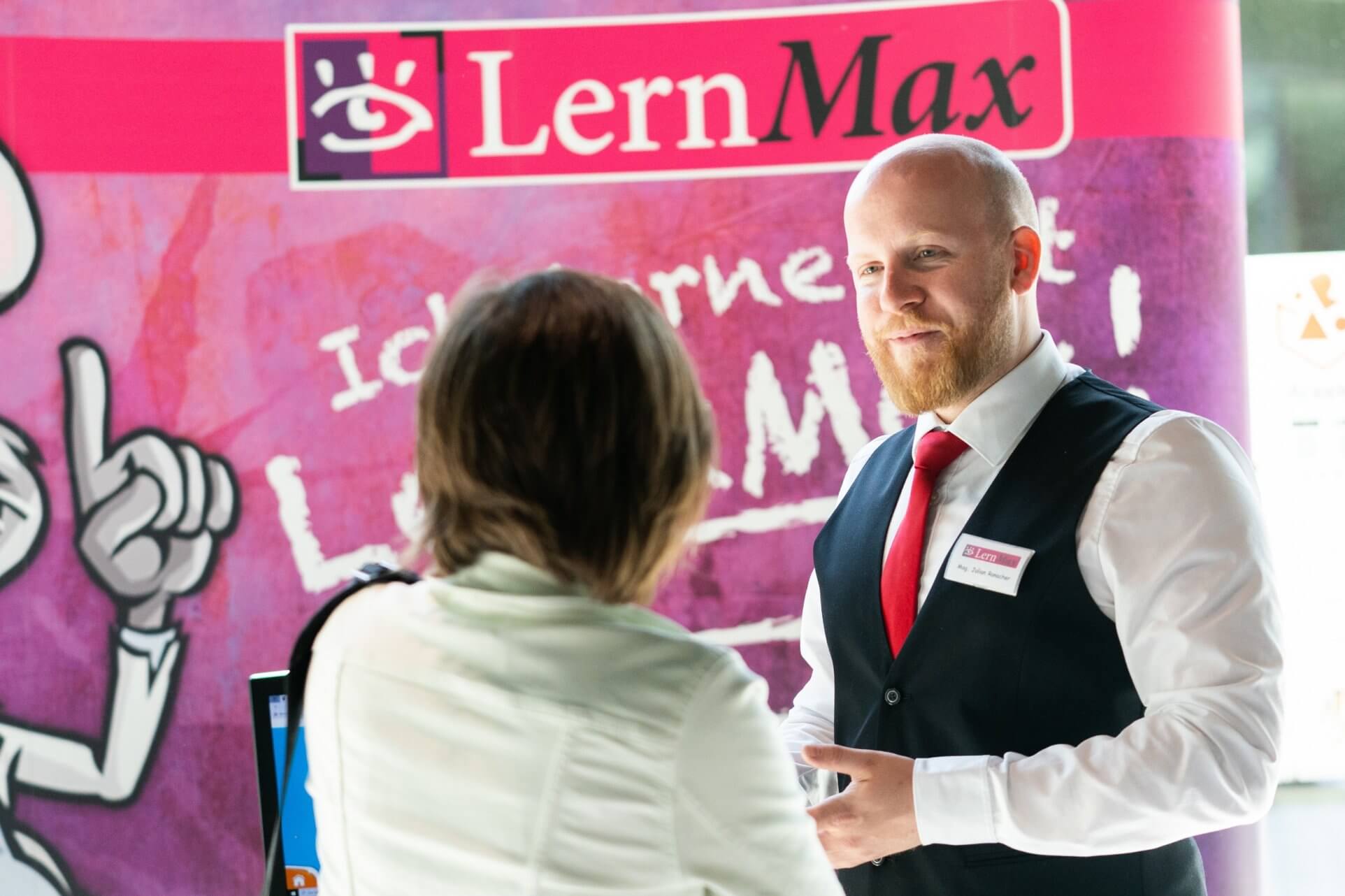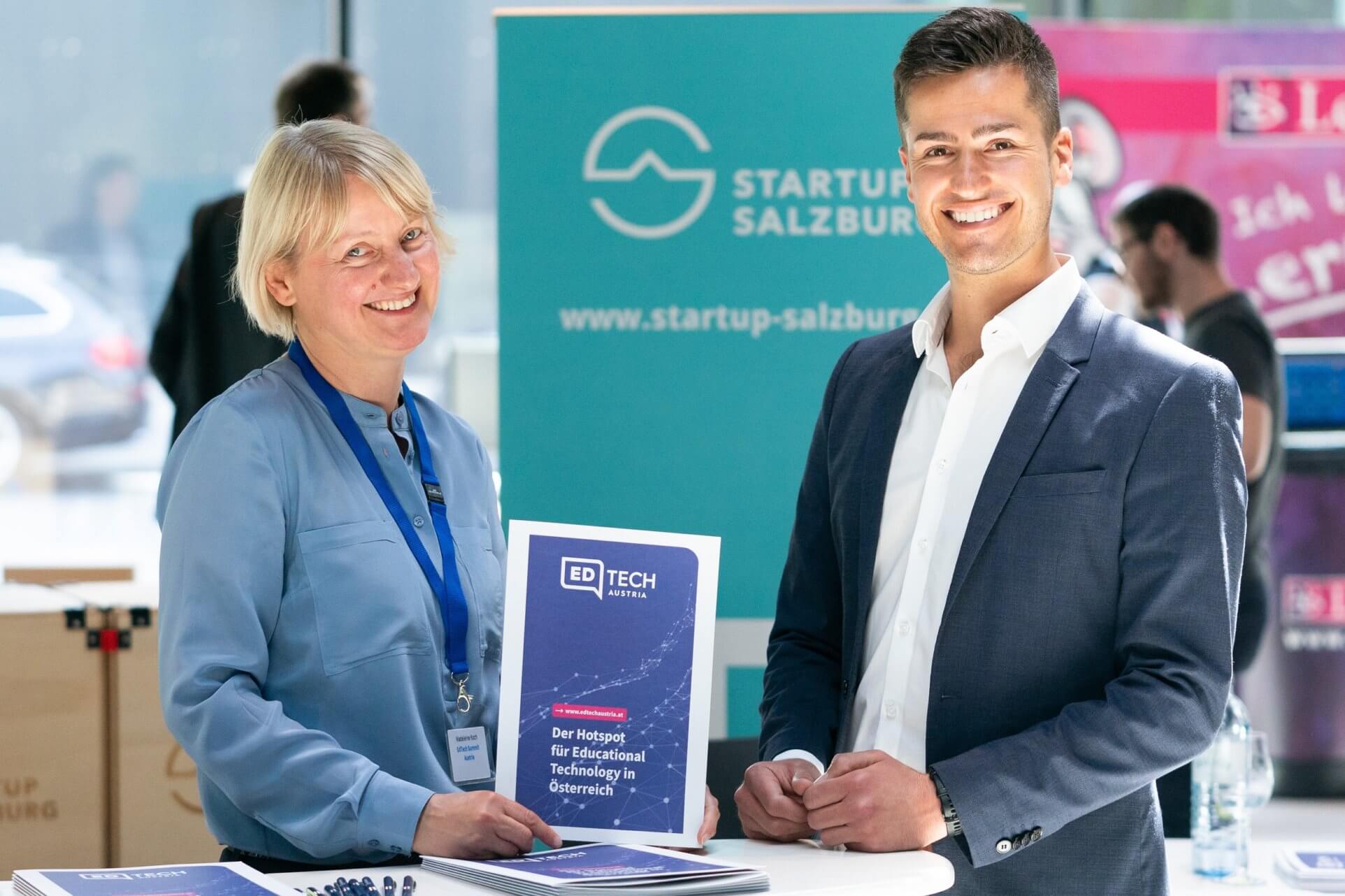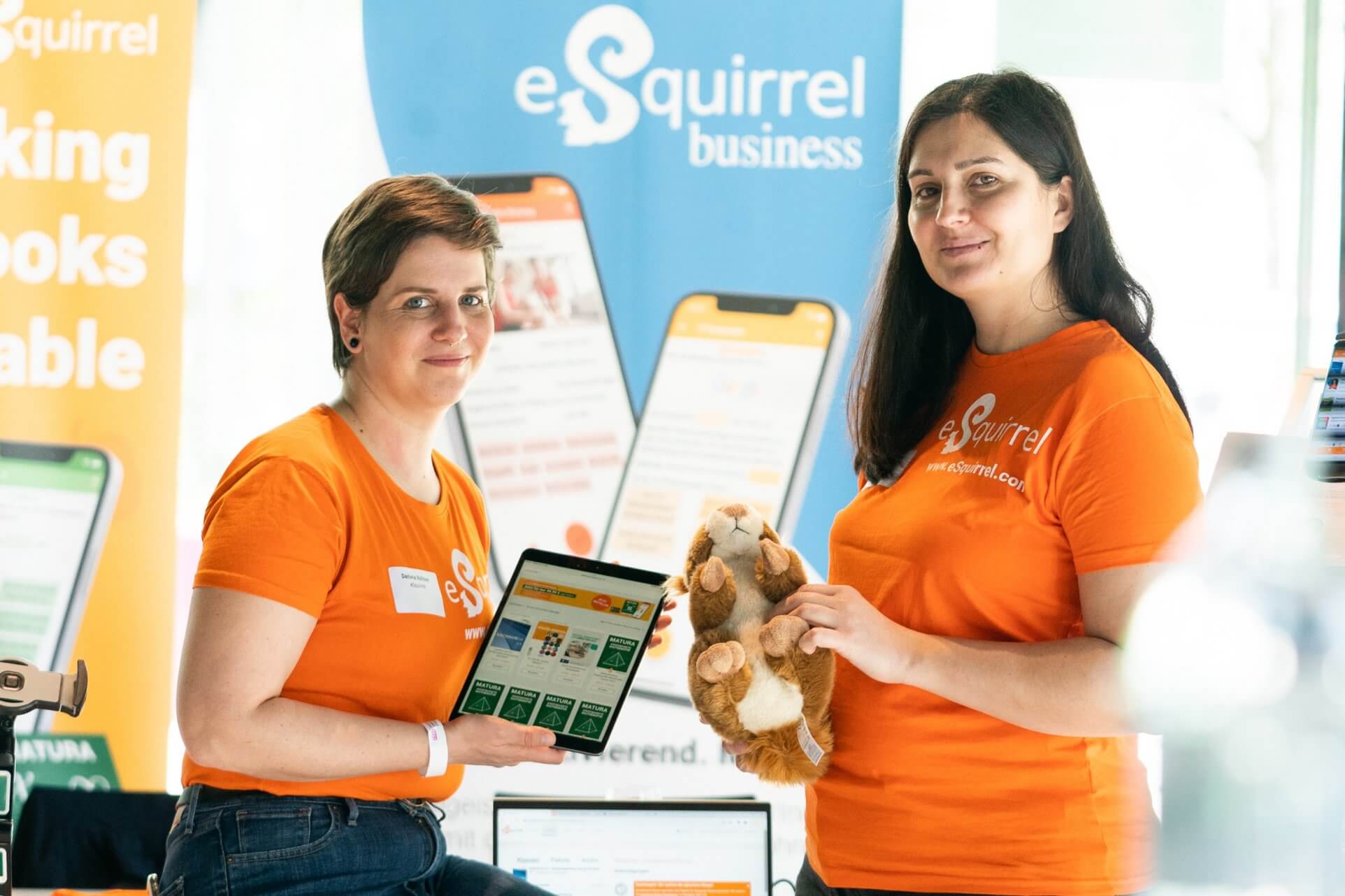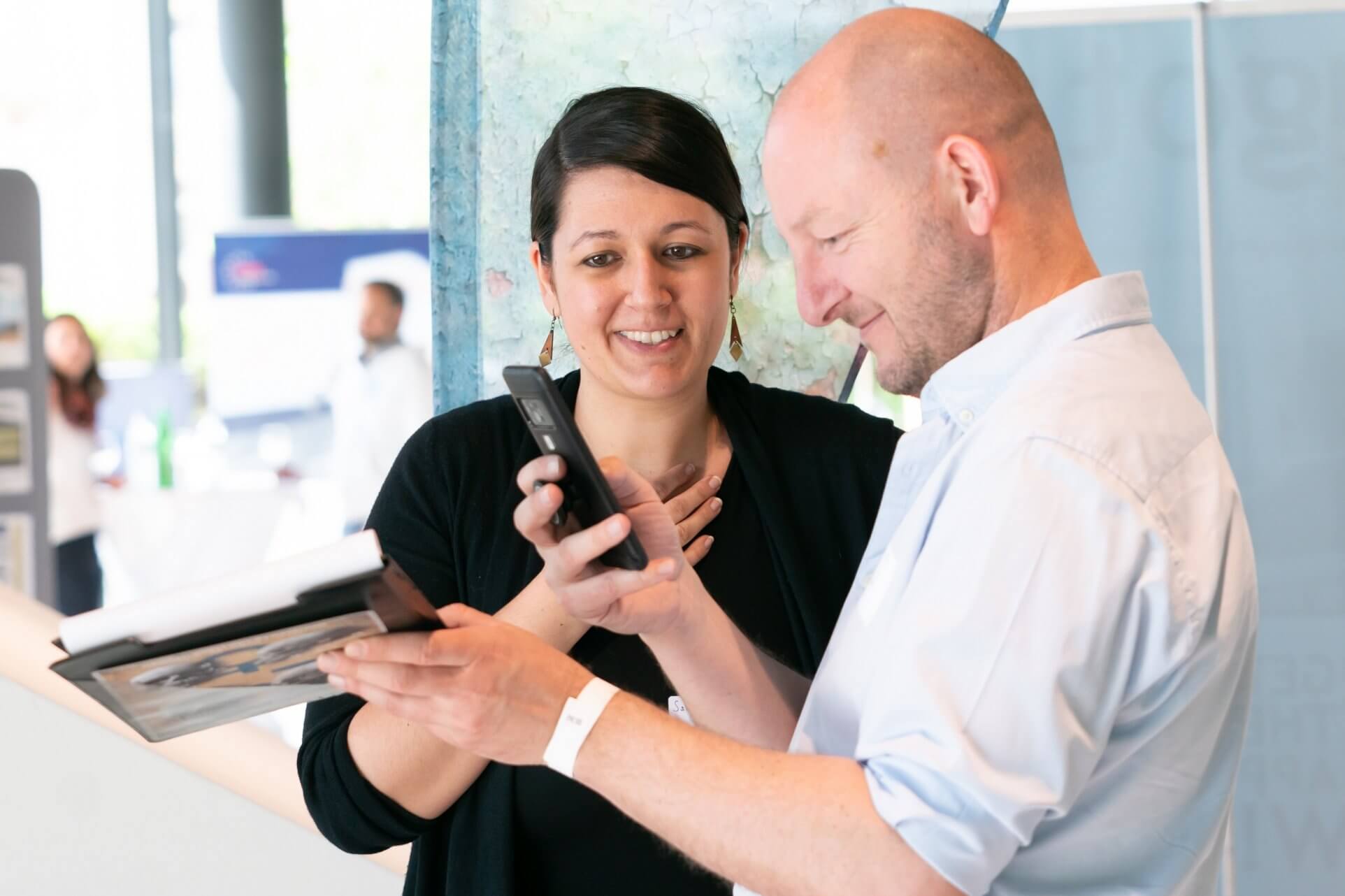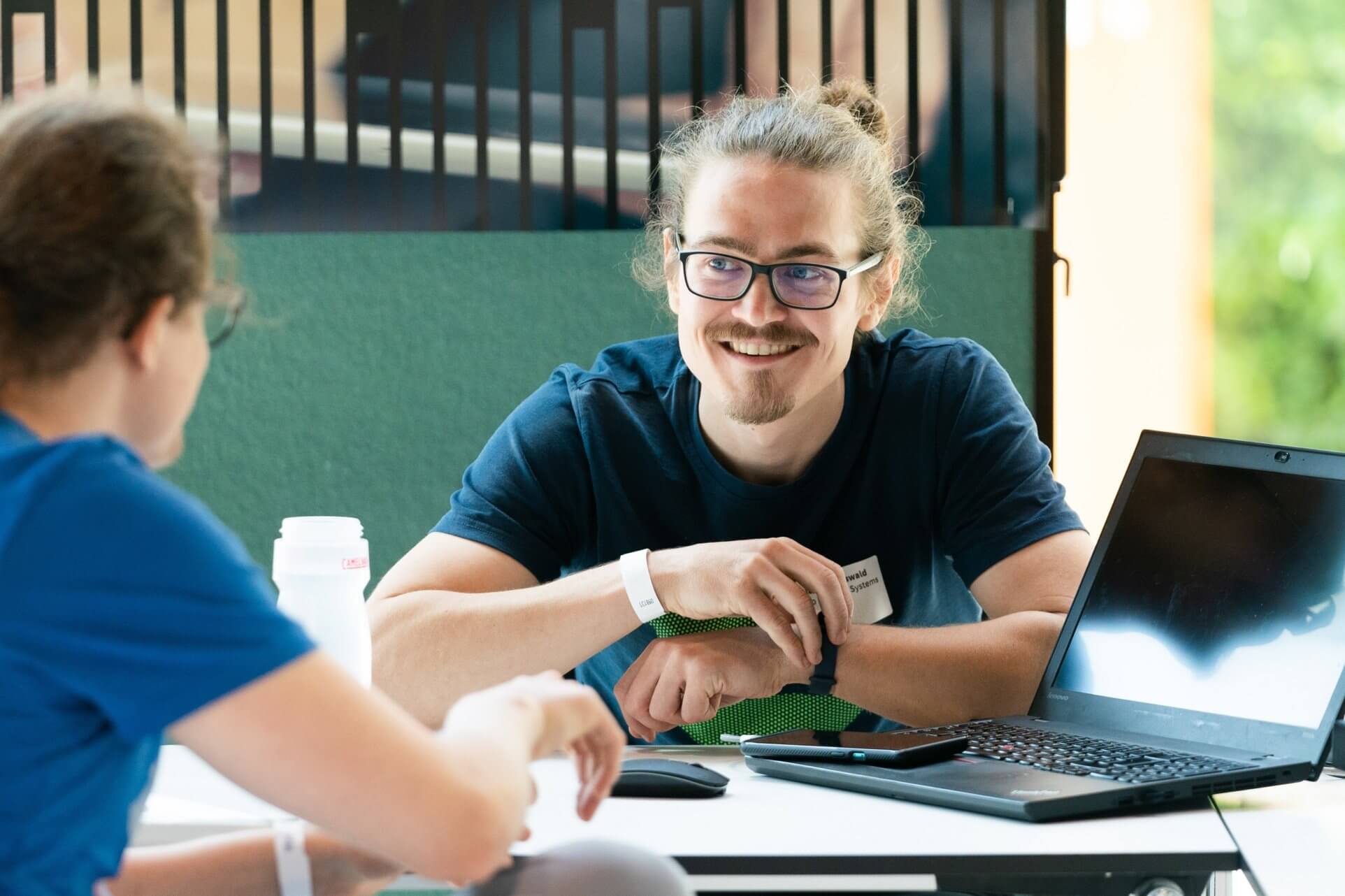EdTech Summit Austria showed the diversity of the scene
How can learning be improved? And how can digital learning opportunities be established in schools, universities and companies? These were the central questions of our first EdTech Summit Austria, which took place on Tuesday, 3 May at the WIFI Salzburg and online. Many EdTech companies, representatives from schools and universities, from administration and politics were present.
“Technology will not solve our education problem. Our keynote speaker Manuel Dolderer, founder of CODE University, started the summit with this provocative thesis. Technology is not a panacea, although it can solve certain injustices globally and serve as an equaliser. For example, it enables access to education: People can learn from the best in the world, regardless of where they live, with little technical resources – all they need is internet access and a terminal device. Think of online lectures at the renowned Ivy League universities.
But do educational technologies help people to learn on their own responsibility? Not always, is Manuel Dolderer’s criticism. In his view, technology is too often in the foreground. After all, methods such as gamification, nudging, competitive approaches and co. “spoil” the learners. After an entertaining session on the language learning app Duolingo, who wants to open their worn-out vocabulary book and swot up vocabulary the old-fashioned way?
Manuel Dolderer argues that before using educational technologies, we should consider: What do we (as learners or as teachers) want to achieve with the use of educational technologies? This is also the view of the second keynote speaker at the summit, Christine Trültzsch-Wijnen, university professor for media education at the Salzburg University of Education Stefan Zweig. In discourses about EdTech, the “tech” is often overestimated and the “education” underestimated. For teachers, it is important to use the supporting technologies in a problem-oriented way: They must question the didactic added value of individual tools. Only then can the technology support the didactics, from which teachers and students benefit. What is your advice to EdTech companies that want to enter the school market? “Work with students and teachers before entering the market. Only then can the technology support learning in schools.
Pandemic has accelerated development of educational technologies
The pandemic has ruthlessly exposed the shortcomings of digital education in Austria. How do Austrian EdTechs compare? And what must our country do to not miss the boat?
At the beginning of the pandemic, all countries faced the same problems and challenges: Neither were teachers trained for digital teaching nor were curricula designed for it. Then the networks were expanded, many exciting ideas were implemented and some EdTech start-ups were founded – also in Austria. “The EdTechs were the first to make their services freely available at the beginning of the pandemic. We see this now in the Ukraine war as well,” said Beth Havinga, Managing Director of the European EdTech Alliance. However, the framework conditions are often lacking. Bernhard Niesner, CEO of Busuu, lives in the UK, the largest EdTech market. “In Austria, too much is centrally controlled, which is difficult for EdTechs,” is his main criticism of the domestic system. This is because, compared to Great Britain, the domestic schools have too little budget that they can invest in the educational software that suits them on their own. Iris Rauskala of the Ministry of Education emphasises another point: “At the end of the day, the use of EdTech must ensure the learning success of pupils.”
What do the experts want for education in Austria in five years? A merger of the entire education landscape with clearly defined framework conditions, the closing of ranks between technology and pedagogy, a testing infrastructure, more Unicorns and much more were the answers given by the panellists.
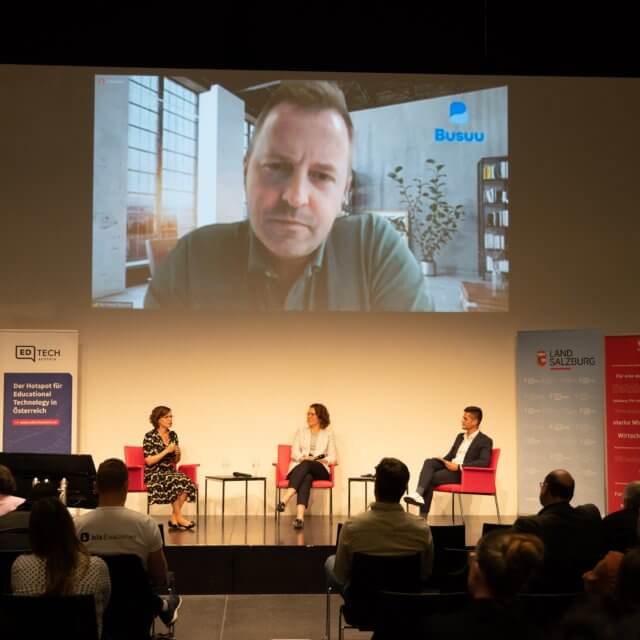
A market with growth potential
In addition to the main programme on stage, workshops dealt with topics such as virtual and augmented reality in education and training, the change of teaching and learning processes through digitalisation, playful learning and many more. Between the programme items, the participants strolled through the Expo, where 20 members of EdTech Austria and research projects from the EdTech sector presented themselves. The atmosphere was relaxed and they were happy to come together for the first time as a community in presence. Walter Haas, Managing Director of Innovation Salzburg, where EdTech Austria is based, also drew a positive conclusion: “I am overwhelmed by the great ideas, the great companies and the many impulses that we heard and saw at the first EdTech Summit. The topic of EdTech is already well covered in Austria, but it is still not being brought before the curtain enough. There is still enormous growth potential in this market.
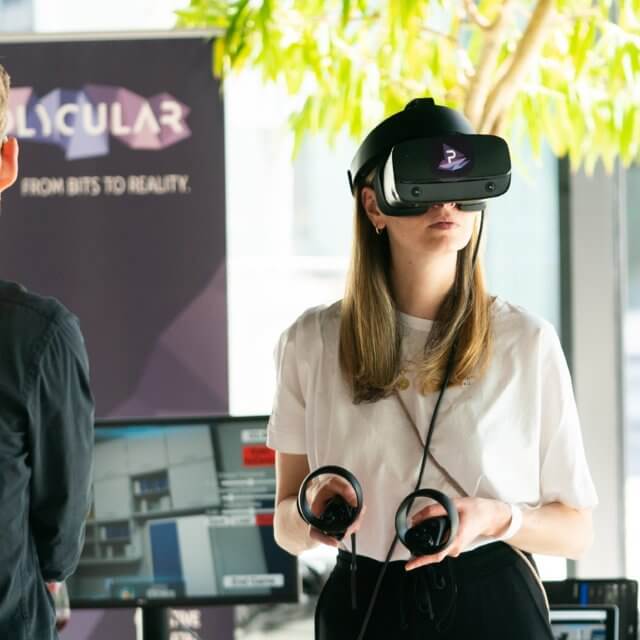
Wie hat es den Teilnehmer:innen gefallen? Hier ein paar Stimmen:
Sarah Ambichl von ArchäoNow, Austellerin beim EdTech Summit Austria:
„Uns gefällt es sehr gut hier. Der Summit ist unsere erste Messe nach Corona, an der wir teilnehmen. Die Vorträge sind sehr spannend, die Organisation ist super und die Leute sind alle sehr nett. Man kann sich sehr gut vernetzen und austauschen. Man lernt Gemeinsamkeiten kennen und kann schauen, wo man sich gegenseitig unterstützen kann. Der Summit ist somit ein optimales Networking-Event.“
Lukas Ott von Quinn, Aussteller und Teilnehmer bei der Startup-Demo : „Ich finde den Summit cool. Die Atmosphäre ist sehr entspannt. Das Ambiente ist extrem gut und die Organisation ist top. Beim Pitch auf der Bühne habe ich mich auch total wohl gefühlt, weil die Leute hier sehr entspannt und sympathisch sind. Ich habe viele tolle Gespräche geführt. All in all eine super Veranstaltung!“
Thomas Layer-Wagner von Polycular, Aussteller und Workshop-Leiter: “Es ist schön, dass es jetzt den ersten Summit gibt! Der Mix an unterschiedlichen Leuten aus verschiedenen Bereichen ist spannend. Auch die Vernetzung mit den anderen EdTechs tut gut: Man hat sich zwar schon online öfter ausgetauscht, aber es ist super spannend, mal die Gesichter der Leute in real zu sehen und miteinander zu reden. Das Event ist allgemein gut gelungen, auch mit den vielen interessanten Workshops rundherum. Bei unserem Stand haben wir auch immer wieder gute Gespräche und interessante Leute gehabt.”
How did the participants like it? Here are a few voices:
Sarah Ambichl from ArchäoNow, exhibitor at the EdTech Summit Austria:
“We like it here very much. The Summit is the first trade fair after Corona that we have participated in. The presentations are very exciting, the organisation is great and the people are all very nice. You can network and exchange ideas very well. You get to know commonalities and can see where you can support each other. The Summit is therefore an optimal networking event.”
Lukas Ott from Quinn, exhibitor and participant at the Startup Demo: ”
I think the Summit is cool. The atmosphere is very relaxed. The ambience is extremely good and the organisation is top. I also felt totally at ease when I pitched on stage, because the people here are very relaxed and likeable. I had many great conversations. All in all, a super event!”
Thomas Layer-Wagner from Polycular, exhibitor and workshop leader:
“It’s great that there is now the first Summit! The mix of different people from different fields is exciting. The networking with the other EdTechs is also good: we’ve already exchanged ideas online many times, but it’s super exciting to see people’s faces in real life and talk to each other. The event was generally very successful, also with the many interesting workshops around it. At our stand we also had good conversations and interesting people again and again.”
Which EdTech companies are there in Austria? – Take a look at our YouTube channel!
Here are a few impressions from our EdTech Summit Austria. We look forward to seeing you again in 2023!
More articles
The following articles might also interest you.
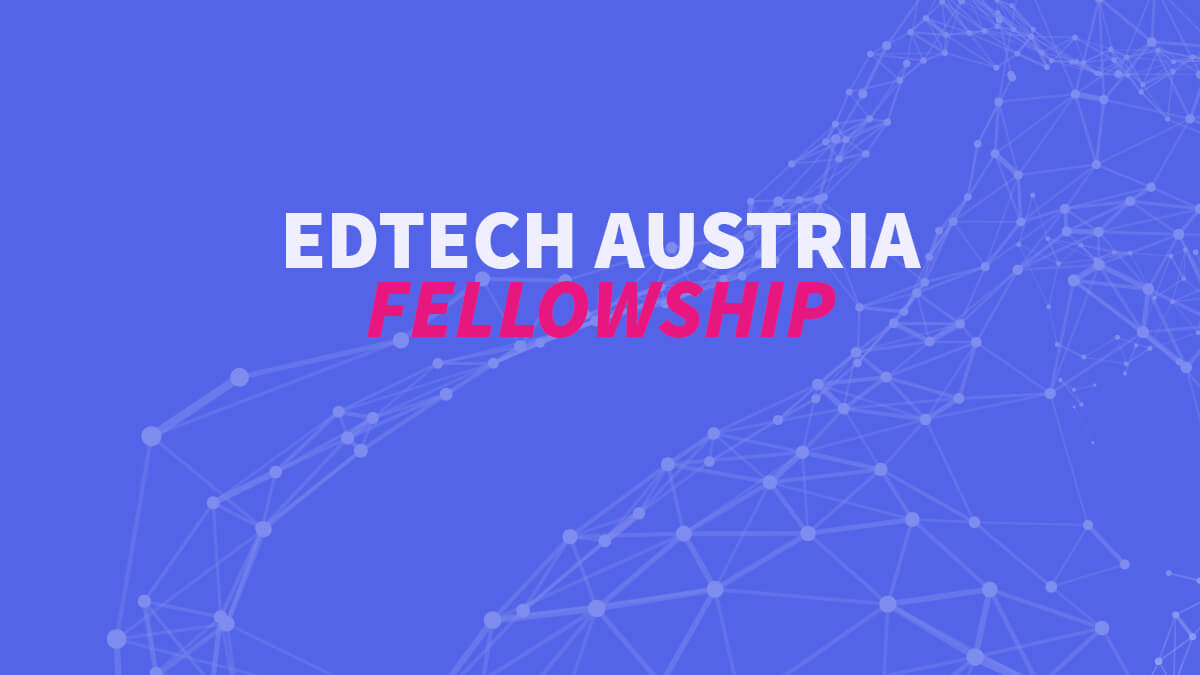
EdTech Austria Fellowship
24. October 2024

Lifelong Learning in Transition: Opportunities and Challenges of AI
17. January 2025
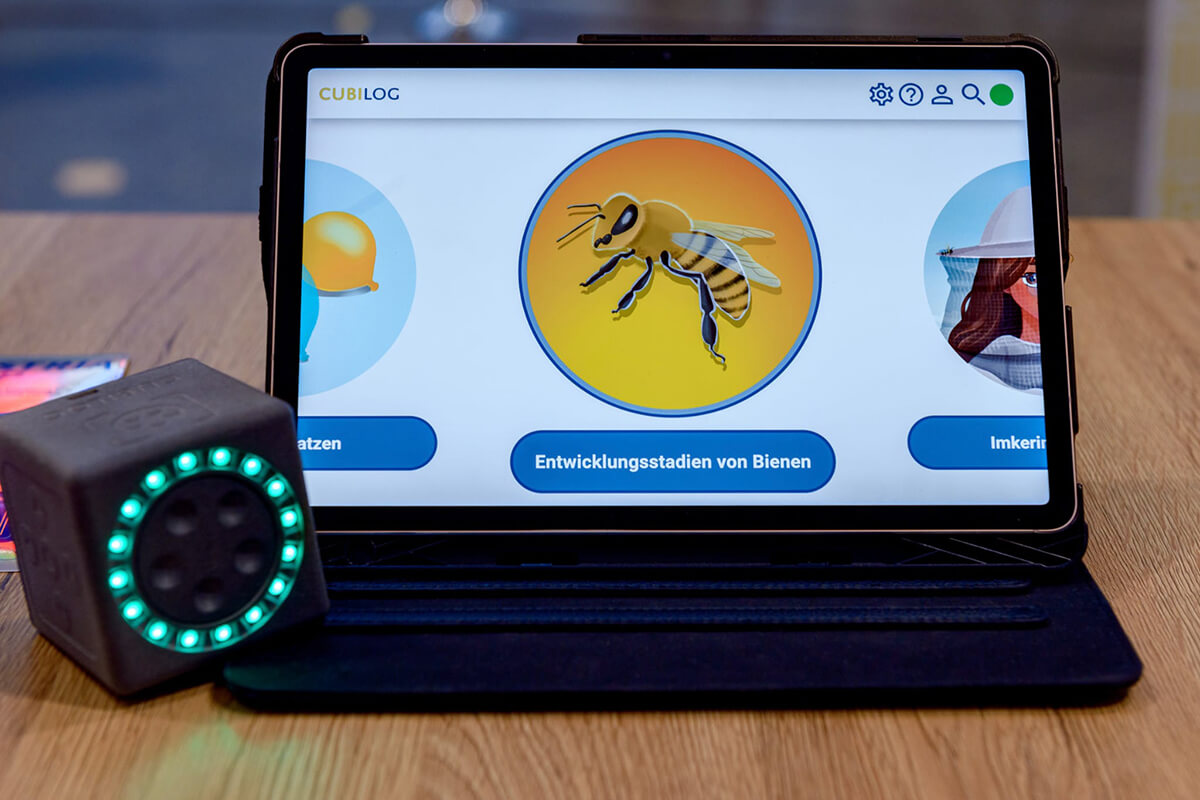
Motor and digital: Cubilog reimagines language development
16. December 2024
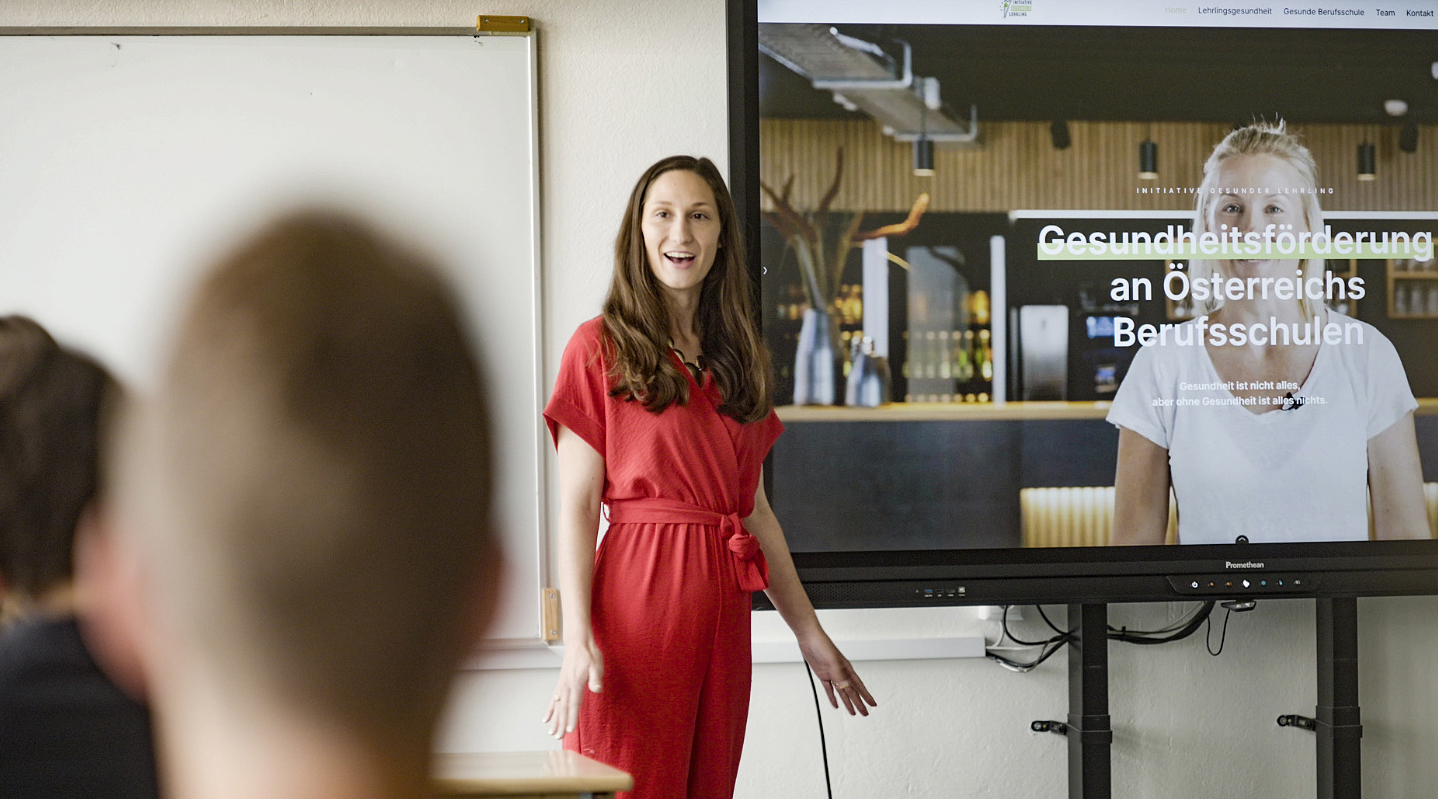
“Healthy Apprentice”: Health Literacy for Vocational Schools
28. November 2024
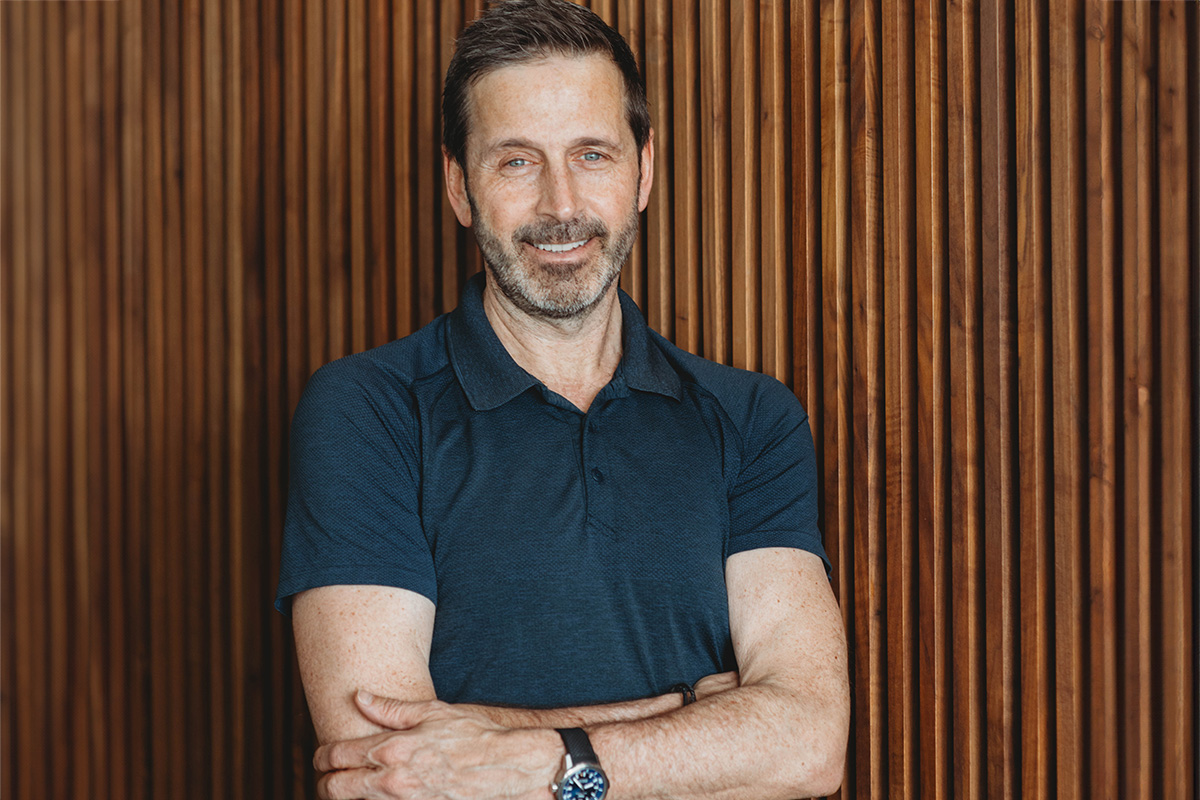
Good Days, Bad Days: “Upstrive” Captures Mental Health
15. November 2024
